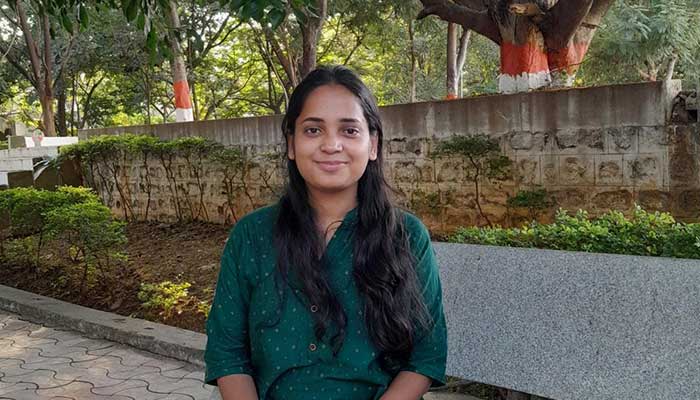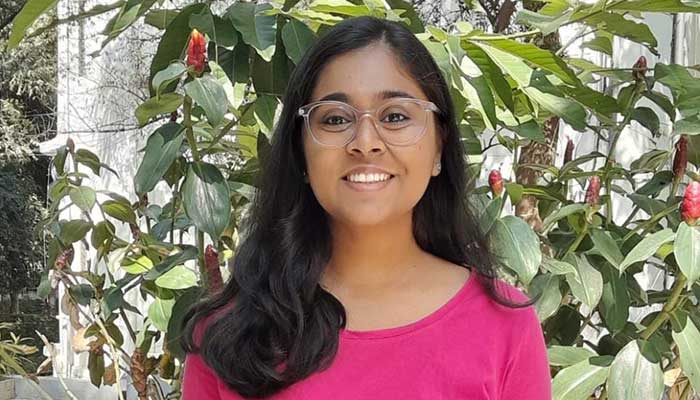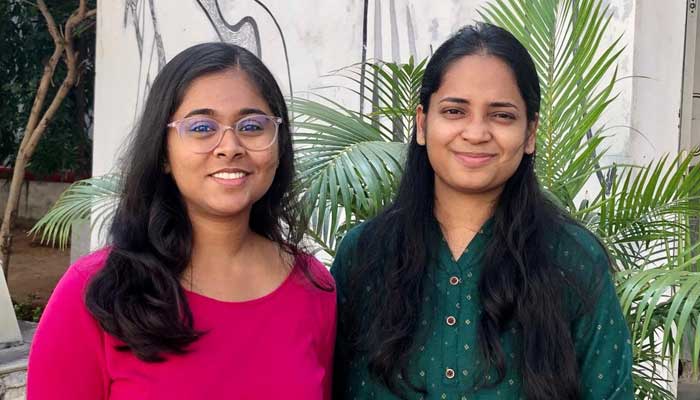With a generous stipend of Rs 50,000 a month, the KCIS fellowship is a coveted one entitling PhD recipients to a waiver in tuition fees, besides covering other expenses. Among this year’s winners is a self-confessed ‘non-techie’ while the other is a BTech graduate who took the research plunge. What’s common though is their impeccable track record and extraordinary aptitude for research.
Pragati Gupta
A 16-year-old Pragati’s curiosity towards Psychology was vetted when hers was the inaugural batch in school where the subject was introduced. To learn more about the complexities of human behaviour, she enrolled for a Bachelors degree in Applied Psychology from Amity University, Kolkata. Discovering her passion for and marvelling at the mind machine, she went on to pursue a Masters in Neuro Psychology at the National Forensics Sciences University. It was during an internship at IIT Gandhinagar that Pragati went further down the rabbit hole when she was exposed to techniques such as eye-tracking, and EEG (non-invasive method of deciphering electrical activity in the brain via placement of electrodes on the scalp) to study cognitive impairments. Even after completing her Master of Science, she continued to work on some projects related to meditation and brainwaves at IIT Gandhinagar. “I was exploring various areas of Cognitive Science and each field in itself is so vast,” she remarks.

Pragati’s foray into the Cognitive Sciences lab at IIITH began even before her acceptance as a PhD candidate here. Intrigued by ‘empathy’ and the cognitive responses it triggers in those affected by it, she applied as a Research Assistant under Prof. Kavita Vemuri. Prof. Kavita’s extensive research into detecting areas of brain that are activated by empathy with the help of fMRI (functional magnetic resonance technology) is well known. “I had studied a bit about those techniques while doing my Master of Science and wanted to delve further into the area,” elaborates Pragati. fMRI techniques can also be applied to study other aspects of brain functioning such as motor movements. With existing data, Pragati began analysing brain images in response to neuro rehabilitation physiotherapy. Despite the initial apprehension of fitting into a “technical university”, sufficient learning in these related projects spurred her into seeking out a full-term PhD position at IIITH. “I don’t have a background in Computer Science and I knew that a fair amount of coursework revolves around that. It’s like working on a blank slate but I had done enough research into what it entails and decided to give it a shot,” she smiles.
Pragati’s current focus is on knee rehabilitation and the plasticity of the brain in response to strokes. “In India, not much research has been done on stroke patients. Mere medication or physiotherapy has not yielded great results in their rehabilitation. With the initial stage of paralysis being critical for stroke survivors, the emphasis of my research is on providing stimulation techniques or assistive devices during this period to help remap certain areas of the brain to help them regain control over basic physical movements,” she says. Selected PhD candidates at IIITH who perform exceptionally well in the Post Graduate Entrance Examination (PGEE) interview are automatically shortlisted for another interview round with the KCIS fellowship panel. Pragati muses that it’s perhaps the ramifications of her research which she explained in great detail to the interview panel that bagged her the fellowship award.
Though Pragati began toying with the idea of pursuing a PhD at IIITH even as an RA, her decision was cemented by the presence of the vibrant academic community on campus. “One can really see the zeal in the faculty. And it’s contagious. When they themselves are so passionate about their work, they obviously impart it to the students too,” she remarks. In addition to academics, Pragati reveals that her second passion is basketball. After representing her high school and college at the District-level basketball matches, she is enthused to discover a thriving basketball team on IIITH campus. “The women’s team won the inter-collegiate state level basketball tournament that was held at Medak recently. Apparently we made history,” she says with pride.
Advaita Saxena
Advaita Saxena is a PhD candidate at the Centre for VLSI and Embedded Systems Technologies (CVEST) at IIIT Hyderabad. Her foray into the field of Engineering beginning with an undergraduate degree was not surprising given that hers is a family of engineers. As a student of Electronics and Engineering, she found her interest in Electronics being sufficiently piqued with VLSI courses such as Embedded Systems and Analog Design. However, it was only when Advaita accepted a placement offer and began working as a software engineer that she was compelled to acknowledge her original passion for all things electronics. “I found that what I studied was not being applied anywhere,” she says, quickly adding, “And I really liked what I studied”. While scouting for research opportunities, she chanced upon IIITH’s PhD program where she was selected. “For research, most people assume that you have to complete your Master’s and then take the long route towards obtaining a PhD. But as it turns out, you can actually minimise the number of years in the journey if you have a decent enough experience in your undergraduate level and a good understanding of your basics,” she says.

For Advaita, the experience she gained during her BTech project in the final year proved invaluable at first in the PGEE interview and later for the fellowship. “I had to create interface circuits for bio-MEMS (biomedical electromechanical) sensors. Since it was a beta project, there wasn’t really enough time to get perfect results,” she states. But that didn’t stop her from understanding the nitty gritties of each component involved in the design. “My interviewers were more interested in determining if I knew what my project was all about rather than the end results.”
Advaita is currently working under Prof. Aftab Hussain as her advisor. Prof. Hussain whose research focus is on stretchable and flexible electronics and their application in the consumer electronics segment, is not only renowned in the field but has also authored the first-ever textbook on ‘Introduction to Flexible Electronics’. “I didn’t realise it then but my BTech project actually was in a way about flexible electronics, because the pressure sensors that we were using had a diaphragm. It stretches and compresses on applying pressure acting as a flexible layer in general,” recalls Advaita.
Outside of research and work, Advaita finds her calm in mandala drawings. As someone new not only to the institute but also to the city of Hyderabad, she reveals that she is enjoying the city weather which is quite unlike what she had expected. The biggest plus for her though is the discovery of like-minded individuals on campus. “Unlike in undergrad, when you sign up for a postgraduate degree, you find people who have explicitly come here only because they are interested in it. The company of those with similar thinking makes for interesting collaborations and enhances the entire educational experience,” she says.



Next post